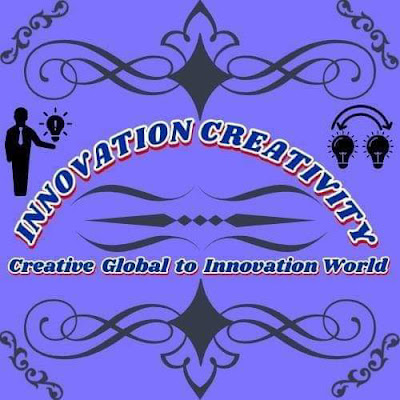Innovation and creativity are the lifeblood of progress, pushing society forward and addressing complex challenges. Mahatma Gandhi, renowned for his philosophy of non-violence and truth, might not be the first figure that comes to mind in the context of innovation. However, his ideals offer a profound framework for fostering creativity and innovation in our modern world. In this blog post, we will explore how the principles of Gandhian ideology can serve as a catalyst for innovation, creative development, and positive change.
Understanding Gandhian Ideology
Before we dive into the application of Gandhian ideals in innovation, let's revisit the core principles that Mahatma Gandhi advocated. His philosophy emphasized non-violence (Ahimsa) and truth (Satya) as the fundamental forces for change. He believed in the power of simplicity, self-sufficiency, and the importance of serving humanity. These principles, when applied to innovation, can lead to solutions that not only advance society but also uplift the human spirit.
Creativity Through Simplicity
One of the most significant contributions of Gandhian ideology to innovation is the concept of simplicity. Gandhi's life was a testament to his belief in living a simple life. In the realm of innovation, this translates into the pursuit of elegant and uncomplicated solutions to complex problems. Simplicity in design and execution often leads to greater usability and accessibility, making innovations more impactful and inclusive.
Ethical Innovation
Gandhi's emphasis on truth and non-violence extends to ethical innovation. Innovators should be guided by a moral compass that prioritizes the well-being of society and respects the environment. Ethical considerations in innovation ensure that advances benefit humanity without causing harm or exploitation. This ethical foundation is essential in the development of technologies and solutions that promote the common good.
Innovation for Self-Sufficiency
Self-sufficiency was another core principle in Gandhian ideology. In the context of innovation, self-sufficiency encourages individuals and communities to take ownership of their creative endeavors. Encouraging self-reliance can lead to the development of localized solutions tailored to specific needs, reducing dependence on external resources and empowering individuals to innovate in their own communities.
Innovation in Service to Humanity
Gandhi's life was marked by his unwavering dedication to serving humanity. Innovations that align with this principle prioritize solutions that address the most pressing challenges facing society. Innovators can draw inspiration from Gandhi's selflessness by focusing their creative efforts on issues such as poverty alleviation, healthcare accessibility, and education for all.
Community-Centric Innovation
Gandhi's advocacy for community engagement is highly relevant to the innovation process. Involving local communities in the development and implementation of innovations ensures that the solutions address real-world problems effectively. This participatory approach leads to more culturally sensitive and community-driven innovations.
Sustainable Innovation
Sustainability was at the heart of Gandhi's philosophy. In the context of innovation, sustainability means creating solutions that not only meet current needs but also consider the long-term impact on the environment and future generations. Innovations that prioritize sustainability are more likely to endure and contribute positively to society over time.
Empowering Innovators
Gandhi believed in empowering individuals to be agents of change. Innovators should strive to empower others by sharing knowledge, providing mentorship, and creating platforms for collaboration. This approach not only fosters a culture of innovation but also ensures that the benefits of creativity are widely distributed.
Conclusion on Ideals of Gandhian Ideology for Innovation Creative Development :
Incorporating Gandhian ideals into the realm of innovation and creative development offers a refreshing perspective on how we can address the complex challenges of our time. Simplicity, ethics, self-sufficiency, and a commitment to serving humanity are timeless principles that guide innovators towards solutions that are not only technologically advanced but also socially responsible. Community engagement and sustainability further enrich the innovation process, ensuring that the results benefit everyone and protect our planet.
In essence, Mahatma Gandhi's philosophy is a call to action for innovators to use their creativity as a force for positive change. By infusing the ideals of non-violence, truth, simplicity, and selflessness into their work, innovators can pave the way for a brighter, more inclusive, and sustainable future—one innovation at a time. Gandhi's vision reminds us that innovation is not just about technology; it's about enhancing the human experience and advancing society in a way that uplifts all of humanity.
Images Courtesy : Pixabay and Wikipedia, Ideals of Gandhian Ideology for Innovation Creative Development,
Gandhian ideals, rooted in simplicity, encourage innovators to seek elegant and uncomplicated solutions, making creativity accessible to all.
Ethical innovation, inspired by Gandhi's principles of truth and non-violence, ensures that advancements prioritize societal well-being and environmental responsibility.
Innovation for self-sufficiency empowers individuals and communities to create localized solutions tailored to their unique needs, fostering a culture of self-reliance.
Gandhi's commitment to serving humanity inspires innovators to tackle pressing societal challenges, using their creative talents to uplift those in need.
Community-centric innovation, driven by community engagement, leads to culturally sensitive and community-driven solutions that address real-world problems effectively.
Sustainable innovation, in line with Gandhi's philosophy, considers the long-term impact on the environment and future generations, ensuring innovations endure and contribute positively to society.






No comments:
Post a Comment